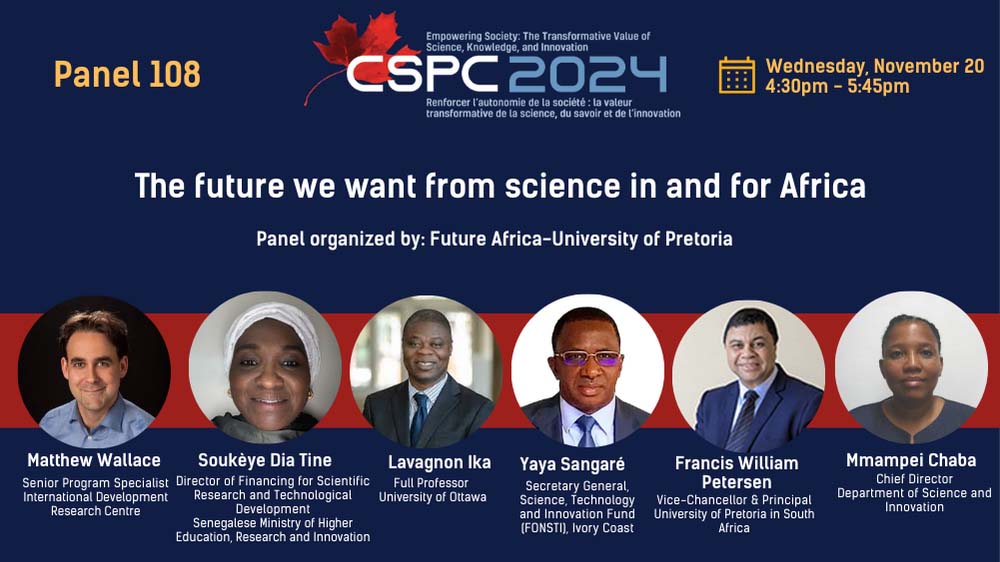Abstract:
Interest in stronger engagement and collaboration with African science seems to be peaking amongst international scientific organizations, global knowledge networks, and funders. This momentum is driven, at least in part, by the growing recognition that embracing African expertise ensures equity, diversity and inclusion in global scientific endeavours, enhances the quality and social relevance of such endeavours and strengthens global solidarity in the pursuit of knowledge and innovation in response to contemporary global challenges. This session focuses on engaging stakeholders regarding this two-way engagement, focusing on the current and future role of African science and its potential to transform lives.
Summary of Conversations
The panel explored the evolving landscape of science in Africa, emphasizing its increasing globalization and the need for equitable collaborations. Discussions highlighted the rising prominence of African science, evidenced by increased research output and the growth of high-quality institutions and networks. Key themes included capacity building, addressing global challenges through collaborative research, and embedding African science within the global scientific community. The panellists underscored the importance of platforms and mechanisms that facilitate open dialogue and transparent collaboration to fully realize the potential contributions of African science. Value propositions included regional and national strategies and governance, unique contextual insights, and the ability to co-create knowledge.
Take Away Messages/ Current Status of Challenges
Key insights and challenges discussed:
- African science is on the rise, evidenced by increased research output and growing institutional capacity.
- Equitable partnerships are essential to avoid extractive research practices and promote shared benefits.
- Contextualization of research is crucial for addressing unique challenges and contributing to global science.
- Weak funding and limited access to resources remain significant barriers to research advancement.
- Underrepresentation of African scholars in global science hinders knowledge dissemination and impact.
- Capacity-building initiatives are necessary to train the next generation of researchers and promote brain circulation.
- Gender inequality in research persists and requires targeted interventions to ensure equitable participation.
- Political instability and conflicts continue to pose challenges to scientific development on the continent.
Recommendations/Next Steps
Proposed actions and strategies:
- Prioritize investments in research infrastructure and human capital development.
- Promote equitable partnerships that empower African institutions and researchers.
- Develop mechanisms for sharing data, technologies, and best practices.
- Strengthen collaborations among African universities and research institutions.
- Increase the representation of African scholars in international scientific forums and publications.
- Address gender inequality in research through targeted policies and programs.
- Align research agendas with national and regional development priorities.
- Advocate for increased funding for research and development from domestic and international sources.
* This summary is generated with the assistance of AI tools


